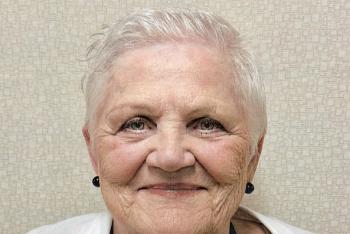Learn about how transcarotid artery revascularization (TCAR) compares to traditional treatments like...
Read More

Heart disease is the leading care of death for men and women in the United States--about one in every five female deaths and one out of every four male deaths according to the Centers for Disease Control and Prevention (CDC). Risk factors like hypertension, diabetes and family history are linked to men’s long history of heart disease, and while you can’t change your genetic predisposition, understanding your risk profile can prevent or even delay heart issues.
For years, stress tests and electrocardiograms, or EKGs, were the primary tests for heart disease. Now, there is now a more accurate screening for those with intermediate risk profiles—coronary calcium score testing.
As its name implies, the coronary calcium score test identifies the amount of calcium in the coronary artery through a low-dose CT scan. This is an important measurement to track, since calcium buildup in the coronary artery can lead to heart disease and an increased risk of heart attack.
“Because this is a screening test, we use a low dose of radiation—just enough to allow us to see the tissue in and around the heart,” said Robert Lazarus, M.D., a radiologist at Inspira Medical Center Mullica Hill. “Once we find the amount of calcium in each artery, an algorithm is applied to this data to determine a coronary calcium score.”
This score does not indicate whether you will have a heart attack in the future. Instead, it calculates your 10-year risk level of developing heart disease.
“The higher the amount of calcium in your arteries, the higher the calcium score will be. And the higher the calcium score is, the more likely you are to develop heart disease,” said Dr. Lazarus. For example, a calcium score of zero means no calcium was found in the heart, meaning you have a low likelihood of developing heart disease in the future. Conversely, a calcium score of 300 or more signifies that you are at high risk of developing heart disease.
Calcium scoring is given to both men and women, and is most beneficial to further assess risk for people who are at intermediate risk for heart disease. If you are between ages 35 and 50 and have a family history of heart disease, especially a family member who had heart disease before the age of 50, you might benefit from this test. In addition, the coronary calcium score can be beneficial for people who have diabetes and are over the age of 40.
Unfortunately, you can’t change the trajectory of your risks for developing heart disease; however, the earlier you get screened, the earlier you know what lifestyle changes you need to make.
“Calcium scoring is perhaps one of the best diagnostic tools we have for heart disease in patients who are young with a family history, as well as in people with diabetes over the age of 40. It outperforms other tests, like stress tests and EKGs, in terms of predicting disease,” said Martin Scott Dawson, MD FACC FACP FASE FASNC, a cardiologist at Inspira Medical Center Mullica Hill.
With your calcium score, you and your health care team can decide whether and when to start therapy to lower your cholesterol, make dietary changes, implement a new exercise regimen and introduce or adjust medication.
“Detecting heart disease early gives you the opportunity to treat and manage your heart disease profile. Especially for men and women who are at a higher risk, knowing you can take control of your health is the first step toward a healthier life,” said Dr. Dawson.
Inspira Health has joined forces with Cooper University Health Care to provide patients access to the most comprehensive cardiac program in South Jersey. Learn more about Inspira Health's Cardiac Care.

Learn about how transcarotid artery revascularization (TCAR) compares to traditional treatments like...
Read More
Heart disease symptoms can manifest differently in women than in men, making early detection...
Read More
Meet Rosalind Jackson: At 82, she's unstoppable. Despite enduring multiple heart attacks, this...
Read More